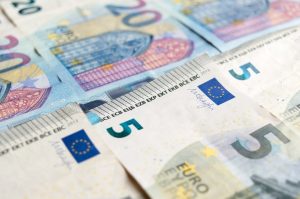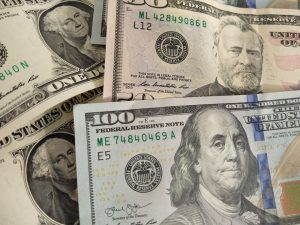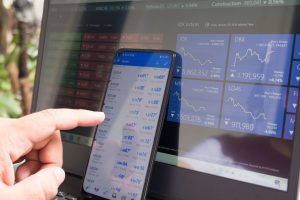The forex market is a decentralized global financial market where currencies are traded. It is also known as the foreign exchange market, currency market, or FX market. The forex market is the largest and most liquid financial market in the world, with an average daily trading volume of around $5.3 trillion.
The forex market encompasses a wide range of participants, including banks, corporations, governments, hedge funds, retail forex brokers, and individual traders. The market operates 24 hours a day, five days a week, and is open to traders from all over the world.
The main purpose of the forex market is to facilitate the exchange of one currency for another. Currency trading is done in pairs, with one currency being traded for another. For example, the EUR/USD currency pair represents the exchange rate between the euro and the US dollar.
The forex market is unique in that it operates on a global scale, with no central exchange or clearinghouse. Instead, trading is done through an electronic network of banks, brokers, and other financial institutions. This allows traders to buy and sell currencies from anywhere in the world, at any time.
The forex market is also known for its high liquidity. This means that traders can easily buy and sell currencies without affecting the market price. The market is also very volatile, with exchange rates fluctuating constantly due to a variety of factors, including economic news, political events, and changes in interest rates.
One of the key benefits of the forex market is the ability to trade on leverage. This allows traders to control large positions with a relatively small amount of capital. For example, a trader with $1,000 in their account could potentially control a position worth $100,000 or more.
However, leverage can also be a double-edged sword, as it can amplify both profits and losses. Traders must be careful to manage their risk and use proper money management techniques to avoid losing more than they can afford.
In addition to spot trading, where currencies are bought and sold for immediate delivery, the forex market also offers a variety of derivative products, including forwards, futures, options, and swaps. These products allow traders to hedge their currency exposure and speculate on future price movements.
Another important aspect of the forex market is the role of central banks. Central banks, such as the Federal Reserve in the US or the European Central Bank, can influence exchange rates through their monetary policy decisions. For example, a central bank might raise interest rates to strengthen its currency, or lower rates to stimulate economic growth.
Overall, the forex market is a complex and dynamic financial market that encompasses a wide range of participants and products. Traders who are interested in trading currencies should take the time to learn about the market and develop a solid understanding of the risks and opportunities involved.






